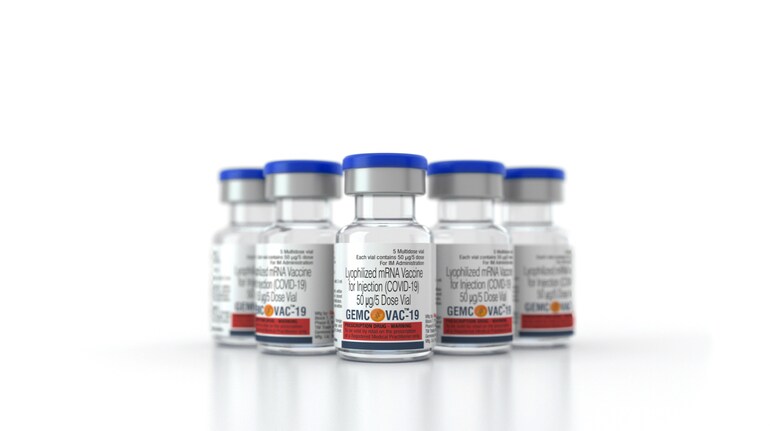
The Drug Controller General of India (DCGI) has granted emergency use authorisation (EUA) for GEMCOVAC-19, the country’s first indigenously developed mRNA Covid-19 vaccine.
The EUA follows a recommendation of the expert group of the Central Drugs Standards Control Organisation (CDSCO), which deliberated on the vaccine candidate’s clinical trial data from 4,000 volunteers.
With the DCGI’s approval, GEMCOVAC-19 becomes the first indigenous mRNA Covid-19 vaccine to be available in India.
GEMCOVAC-19 has certain unique features that can give it an advantage over other similar vaccines. A look at the key features of GEMCOVAC-19:
A powdered vaccine
Unlike other Covid-19 vaccines in India, GEMCOVAC-19 is not stored in liquid form. The mRNA vaccine developed by Gennova Biopharmaceuticals is available in lyophilised (freeze-dried) or powdered form. The vaccine can be reconstituted using a diluent before administration.
Dosage and eligibility
GEMCOVAC-19 is a two-dose vaccine that needs to be administered intramuscularly in adults with a 28-day gap. The DCGI approved the vaccine for those aged 18 years and above.
Easier storage
GEMCOVAC-19 overcomes limitations associated with mRNA vaccines made by Pfizer-BioNTech and Moderna that need to be stored at sub-zero temperatures, which is a challenge in India and other lower and middle-income countries.
It can be transported to the most remote parts of India easily because it does not require ultra-low temperature storage.
This thermostability of GEMCOVAC-19 makes it more favourable for deployment in India and other developing nations than mRNA vaccines in western countries.
Mechanism
An mRNA (messenger RNA) vaccine works by delivering a set of instructions to cells in the body to make a protein that the immune system can recognise and respond to.

Gennova’s mRNA vaccine uses self-amplifying mRNA, which allows for a low dose of the vaccine due to its slow and sustained release for protein synthesis.
When injected in the muscle, mRNA is released inside the cells and copies of the mRNA are made. The protein produced is identical to that of the antigenic viral spike protein (S-protein) of the severe acute respiratory syndrome coronavirus 2 (SARS‑CoV‑2), the virus that causes Covid-19.
The S-protein is then processed and displayed on the surface of certain cells, initiating an immune response that leads to the formation of anti-S protein antibodies that can neutralise the virus.
Adverse events
Adverse events reported during the clinical trials of GEMCOVAC-19 were mild to moderate, transient, and mostly self-resolved.
Costing and launch
The government will decide the pricing of the vaccine, though Pune-based Gennova Biopharmaceuticals says it will be competitive.
Gennova plans to introduce the vaccine soon and aims to produce four to five million doses a month, which can be increased two to three folds, company officials said.
The company has a licence to manufacture at risk from CDSCO and has 7 million doses approved and released by the Central Drug Laboratory in Kasauli.

